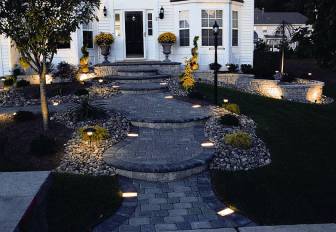
Folding Dining Table Set
Tips On How To Keep Your Outdoor Wood Furniture Looking Like New
Often, the most attractive Outdoor Patio and Deck Furniture is made from wood. Wood is a natural product, but when exposed to moisture and changes in temperature and humidity, wood reacts in a number of different ways. Proper maintenance of your Wood Patio Furniture will provide a long life over many years in a variety of weather environments.
Teak Furniture is perhaps the most desirable, and arguably the most expensive, outdoor wood furniture on the market. Teak is a beautiful, honey-colored, dense, tropical hardwood that is resistant to insect infestation and contains natural oils which make it resistant to rot and decay. Unfortunately, teak trees grow very slowly and take at least 60 years to reach harvest-able size, and because teak furniture is in such high demand, teak is not as easily acquired as woods like cedar, oak, or pine. With supplies not able to meet demand, the price of teak has increased dramatically. The advantage of teak, though, is that, with proper maintenance, it can last for more than 50 years, which makes the initial investment worth it for many homeowners.
While cleaning teak is not mandated, it is not a bad idea to clean outdoor teak furniture each year to remove any buildup of pollen, sap, or mildew. Do not use any bleach solutions because this may damage the coloration. Clean the furniture with water and/or neutral soap and a soft brush. Follow each cleaning with a coat of teak oil (optional) if you wish to keep the wood its original honey color.
Other tropical hardwoods, like Eucalyptus, have gained in popularity as the price of teak has grown prohibitive for many homeowners. Eucalyptus wood, like teak, is alluring, durable, hardy, and resistant to rot and insect infestation. The fast maturity of eucalyptus trees makes them more readily available and more easily affordable. Like outdoor teak furniture, outdoor eucalyptus furniture can be treated with teak oil following an annual cleaning to help preserve the wood’s natural color (if desired).
Varieties of other outdoor wooden furniture include cedar, redwood, oak, and pine. These woods, though (especially pine), must be treated with a preservative to prevent decay, which can occur rapidly if exposed to harsh weather environments. Protecting this wood furniture with a water-resistant stain, protective oil, or polyurethane is also recommended. Your local home and garden store will have many options from which to choose, and a store associate should be able to assist you in selecting the most appropriate product to be reapplied regularly (check manufacturer’s instructions for details).
Outdoor wood furniture should be cleaned once a year. Mix one tablespoon of bleach, five tablespoons of a gentle dish washing liquid, and a gallon of water, and softly rub the surface of your wood furniture with a soft bristle brush. Wash the solution from the furniture, and allow it to dry completely in the sun. Repainting or restaining wood furniture could be indicated at this time to cover and protect any worn or damaged areas.
All woods are susceptible to rot and decay if left in damp, humid, and shady areas for a long time. Wood that becomes saturated with rain water is more likely to warp and rot, so using protective covers when your furniture is not in use is strongly advised to keep your wooden patio furniture in good shape. The bases of furniture legs are definitely the most susceptible when it comes to water damage. If wood furniture is kept in the grass, at the poolside, or on a surface that collects even a small level of rain water, the legs can become easily saturated and damaged. Covering the bottoms of each furniture leg with rubberized material or small sections of cedar fencing material will help protect your furniture from rotting from the bottom up.
Finally, exposure to chemicals including solvents and chlorine, and exposure to common items such as alcoholic beverages, plants and flower nectar, and hot items (off of a grill, for example) can permanently stain and damage wood surfaces. Additionally, it is vital to prevent plastic objects, like plastic table cloths, toys, placemats, and appliance covers, from lying on wood furniture for a long period of time because plastic can discolor wood. Plastic can also stick to and damage a wood finish.
The lifespan for any wooden patio furniture depends greatly on the type of wood used and the weather it is exposed to. Properly maintaining your outdoor wood furniture can make it last for many years and maximize your investment. Outdoor wood furniture makes a quaint, charming, and nice addition to any backyard, deck, patio, or garden, and with care, it will continue to make a great impression for years to come.




